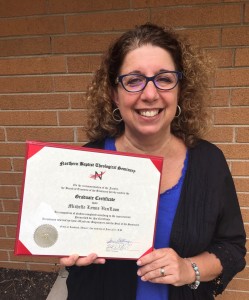File this story under “4-H Fail” or perhaps “The Green Acres Effect”. Here’s a post just for fun today. Enjoy.
 When my family moved to the far edge of Waukesha, WI in 1995, I was determined to help our family acclimate to our new zip code as quickly as possible. Several new friends told me their kids were active in various local 4-H clubs. We’d been to the county fair. We’d seen the blue ribbons given to goats, fruit pies and macrame projects. The whole thing seemed fairly self-explanatory. Bake a pie. Win a ribbon. We decided we’d give 4-H a try.
When my family moved to the far edge of Waukesha, WI in 1995, I was determined to help our family acclimate to our new zip code as quickly as possible. Several new friends told me their kids were active in various local 4-H clubs. We’d been to the county fair. We’d seen the blue ribbons given to goats, fruit pies and macrame projects. The whole thing seemed fairly self-explanatory. Bake a pie. Win a ribbon. We decided we’d give 4-H a try.
In retrospect, I realize this assumption was my first mistake. I assumed that joining 4-H was like becoming a Cub Scout. You paid some dues, went to a few meetings, learned a new skill or two, and did some community service. The people in charge of Scouting or Awana programs held orientations for new parents, and explained how the program worked. Why wouldn’t 4-H be the same way?
It didn’t take me long to discover that 4-H seemed to be organized more like a secret society such as the Masonic Lodge, the CIA or the Illuminati. There was no explanation of how the program worked for us newbies because apparently no one in 4-H was ever a newbie. All participants already knew the secret rules of 4-H because the mysteries of the organization were transmitted from one generation to via DNA. Everyone had been born into the group, just as their parents had before them, like the closed subcultures of various tribes of Gypsies or the Amish.
It took me several phone calls to figure out where our local 4-H club had their meetings. Every time I’d get some 4-H person on the phone, they sounded surprised that someone would be asking the hard-hitting questions I was asking. Apparently, no one ever called to find out things like “Where does our local club meet?” and “When?”
We went to the first meeting of the Cooney Clovers club at the start of the new school year, and the meeting began as some woman who may have been wearing Carhartt overalls and reeking faintly of pig handed checks for amounts like $2.84 to all of those who participated in the fair.
I turned to the woman sitting next to me. “They get checks for $2.84 for being in the fair?”
She recoiled at my wildly inappropriate question with a massive eyeroll. “Or more,” she muttered. She noticed I was about to ask another question, so she ended the conversation by grabbing the handles of her massive totebag and moving to another seat. I looked around the room. All the adults seemed to have totebags bulging with binders, papers, twine and half-built crystal radio kits.
The meeting went on as people spoke in code about signing up for projects. The next fair was nearly a year away. I whispered to my kids, “I think they want you to commit to whatever you want to enter in the fair today.”
“But we don’t even know what the choices are,” my daughter said. My sons were eyeing a dreary sheet cake iced in white frosting and decorated with some four-leaf clovers that was sitting on a wobbly folding table in the back of the room.
My eyes fell on a sign-up sheet being passed around the room. “It says here you can make muffins for the fair,” I said. She nodded and started to write her name on the sheet. Like a bat in a barn, a woman in a faded Cooney Clovers 4-H sweatshirt swooped down on us from out of nowhere and yanked the sheet from my daughter’s hands. Apparently, we’d broken another unwritten rule.
“That’s for you to sign up to be a leader, ma’am,” she tsk-ed.
“Sign up to lead what?” I asked.
“To lead the muffin baking project this year,” she said.
What muffin baking project? My blank stare served as my second question in our conversation.
“You just have to meet with all those who want to enter muffins in next year’s fair a few times throughout the year and teach them how to bake muffins. You do know how to bake muffins, don’t you?” It sounded more like a threat than an invitation.
“Well, sure,” I said gamely. “I like to cook and bake. But before I sign up, I was wondering how and where I am supposed to do this. We’re meeting in a school classroom right now. Do I invite the kids over to our house? How many times should we meet? How will I know…”
She glared at me like a rural Vito Corleone, then shoved a pen in my hand and stood over me as I scratched my name onto the sign-up sheet. I opened my mouth to ask another question, but she walked away before I could get a word out.
That’s pretty much how it went that entire year. After a few meetings, we stopped attending. My kids did a few projects. I taught three or four kids who already knew how to bake muffins – because it was in their DNA – how to bake muffins again. The entire year, I groped to figure out the complex and apparently unwritten rules of the organization, and mostly learned what they were when I broke one of them. (Rule #1: Do Not Ask Any Questions.) After the fair was over, we all decided it was an interesting experiment, but we were done with 4-H.
The woman in the Carhartt overalls, who I later learned was the Viceroy of the Cooney Clovers (or whatever her official title was) called me a few weeks after the fair.
“You’re not coming back this year.” I think it was meant to be a question, but it sounded more like a statement when she said it.
“No. But thank you for asking,” I said.
“Well, you need to stop by my house. Your kids have some checks for $2.84 coming to them.”
OK, 4-H’ers, let me hear from you! Was our experience atypical? What did you like best about your 4-H Club?











